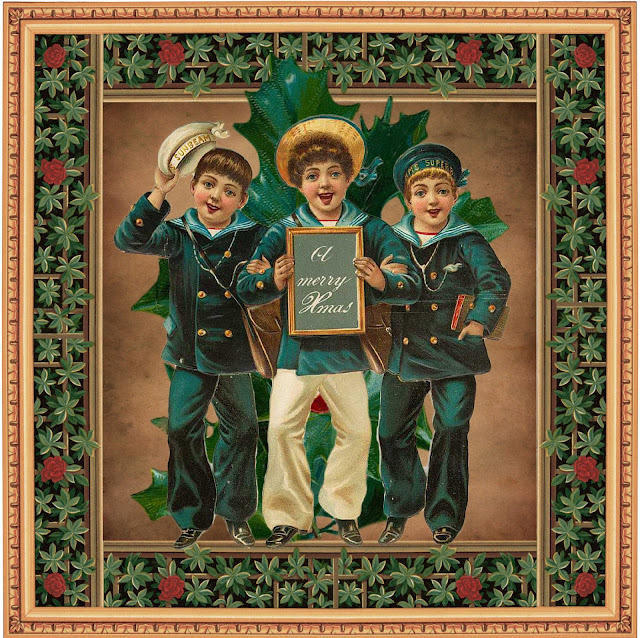What does a catchy, if obscure, 19th-century minstrel tune have in common with a rousing Irish sea shanty? More than you might think, and it all centers around the intriguing evolution of a single word: jamboree.
My adventure into the etymology of "jamboree" began as many such quests do: pinpointing its earliest use. This trek through linguistic history led me to an 1854 song titled Whoop! Jam-Bo-Ree, penned by none other than Dan Emmett, the same composer behind the iconic Dixie. This piece, originating from the blackface minstrel shows of the era, portrays a narrative involving a black man aboard a riverboat—though the specifics of his role, whether as a worker or a low-ranking passenger, remain somewhat ambiguous. (The mock-dialect certainly obscures the meaning of certain lines.)
Whoop! Jam-Bo-Ree is characterized by its playful, albeit somewhat nonsensical use of the term "jamboree" in the chorus. The song, like many minstrel numbers, was crafted to entertain through catchy melodies and repetitive lyrics, yet the three syllable word itself seems to float without concrete meaning, free from the ties of any clear context:
Whoop! Jam-bo-ree! Whoop! Jam-bo-ree!Vinegar shoes and paper stockings,Git up! Ole hoss!
As I dug deeper into the history and adaptations of the song, a fascinating transformation emerged. The old folksong Whoop! Jam-Bo-Ree has morphed over the decades into Whup! Jamboree, now a stalwart of Irish sea shanty repertoire. This transition is not just a simple case of musical evolution; it represents a complete reimagining of the song's identity. The melody has been changed from the original jig (you can hear an instrumental version on the blog of Joe Ayres) to a tune which I quickly recognized as being that of Down Among the Dead Men, an 18th-century English drinking song quite distinct from Emmett’s original composition. Moreover, the lyrics have been significantly altered — though, intriguingly, they retain echoes of their origins. There are some who therefore argue that the two Jamboree songs are unrelated, possibly as a way to distance the respectable modern rendition from its controversial blackface roots. However, the musical and lyrical threads that connect them suggest a lineage. This phenomenon is not unusual in folk music, as the different versions of House of the Rising Sun or Long Lankin can attest (or in a more modern example, how Louie Louie went from the Richard Barry original to the notoriously mumbled version of The Kingsmen, from whence came a variety of "covers" that simply wrote new lyrics. Not to mention the main riff which was taken from El Loco Cha-Cha.)
In the case of Whoop! Jam-bo-ree's nearly-nonsensical "Git up! Ole hoss!" it's been reframed into a line, "Come and get your oats, my son." Probably on the basis of black/southern pronunciation of horse sounding like oats, and then trying to reframe the sentence into an explanation. (Compare Long Lankin, where in some versions Scots dialect "Still me bairn, nourice" has been rendered into the nurse being named Orange, as in, "Please my child, Orange.") The different length of the sailor's tune's line "Down among the dead men let him lie" from the minstrel song's "Git up ole hoss" further made necessary some lyrical alteration.
This exploration into the word jamboree illustrates how music and words evolve over time, influenced by culture, history, and societal changes. From a New York minstrel show in the 1850s to an Irish sea shanty sung with pride, Whoop! Jam-Bo-Ree has traveled through time and place, acquiring new identities. Or, maybe, just demonstrating an interesting example of Death of the Author, a concept which suggests that once a song or story is out in the world, it doesn’t really belong just to the creator anymore. Instead, it's up for grabs, and people can interpret it in their own ways, no matter what the original intention behind it was. When we look at Whoop! Jam-Bo-Ree morphing into Whup! Jamboree, we see this in action. The song has mutated and adapted over time, taking on new meanings and resonating with new audiences, all without much concern for what Dan Emmett might have originally thought or wanted.
But, the next time you hear the spirited call of Whup! Jamboree ringing through the air at a folk festival or a choral recital, remember the winding path this song has traveled. It's a reminder of how music can cross oceans and centuries, morphing and melding to fit new contexts and societies, carrying with it the echoes of its origins, however humble or controversial.
